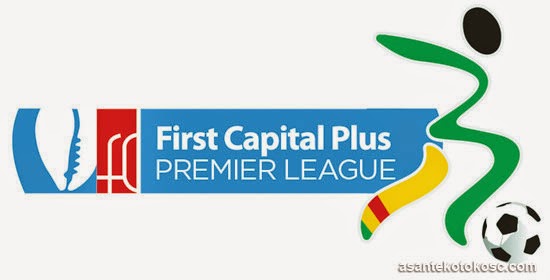 |
| The First Capital Plus Premier League |
The
self-adulation that characterizes the talk by Ghana Football Association (GFA) officials
anytime they speak on the Ghana Premier League (GPL) is one that always
fascinates me.
That
the GPL is ranked third best in Africa and that it is better than South
Africa’s Premier League Soccer (PSL) is a submission that has strongly been
forced on us.
On Monday, May 19, 2014 GFA President Kwesi Nyantakyi, speaking in an insightful interview on Joy FM’s Brazil 2014 show said without any equivocation that, in terms of talent and by extension, player quality, the GPL’s is streets ahead of most African leagues including South Africa’s PSL. The FA President made valid points regarding his take on how some people gloss over Ghana’s poor economy to compare our club football to what pertains in England for example.
That
comparison (references from England to compare with events in Ghana) has no basis
because the English Premier League for example runs in an economy which is significantly
stable and more developed than the economy of Ghana, said the FA President.
Factors
contributing to the underdevelopment of our football clubs and the GPL can’t be
disengaged from the bad state of Ghana’s economy. That, coming from the FA President
was important. In developed economies and countries, football clubs aren’t only
well-structured, they are also truly professional. They attract best of players
and pay them very well.
League bodies in those countries formulate policies which accelerate the development of their leagues. They have adequate resources to support their development. In that case, we cannot overlook economic issues when discussing the development of the GPL. That is why the FA President, Kwesi Nyantakyi was right to say that, until our economy grows to the extent that, clubs can pay their players well, it will always be wrong to compare things here to Europe.
Having
made this point, the FA President, thus surprised me when he said that because
our league has many good talents, it is in fact, better than the PSL. How is
that possible, Mr. President? Do talents alone make a league better? By virtue
of his status at CAF, Kwesi Nyantakyi said he was well-informed on the state
most African leagues.
The
FA President is right but we are all witnesses to what goes on or what exists
in other African countries in terms of league football. We can tell that, the
GPL is behind in many respects. We ought to focus on improving the standards in
organization and stop the self-adulation.
Whatever group that ranked the GPL third best in Africa recently had their own basis but we who closely follow events in the league know better. Let’s stop deceiving ourselves. Yes, we may have the player quality but what else does the GPL has to beat others on the continent?
Infrastructure-wise,
many GPL clubs still play on some terrible pitches. What has been the
performance of our clubs in Africa in the last decade or more? What about the marketing
and sponsorship issues of the GPL? How much money do our clubs earn from the
marketing of the GPL? Does it compare favourably with what clubs in Tunisia,
Morocco, Egypt, Algeria, etc. earn?
Despite
being close to the end of the current season, the GFA/PLB have not rewarded
last season’s league winner. Is that what happens in a professional Premier
League? Isn’t it embarrassing that the FA still haven’t found something to give
to the league champion? Where does this happen? I hate to make comparisons but
will this be seen in the Tunisian, Moroccan, the Egyptian or South African Premier
League which we think we are better than?
The GPL has talents but talents are nothing if the right conditions are not there to harness them. Talents add up to nothing if proper structures and resources are not in place to develop them. Talents amount to nothing if after exhibiting them in a whole season, no recognition is given to you like we have seen in the case of Kotoko since last season. Talents alone don’t make a league better, Mr GFA President.
The GPL has talents but talents are nothing if the right conditions are not there to harness them. Talents add up to nothing if proper structures and resources are not in place to develop them. Talents amount to nothing if after exhibiting them in a whole season, no recognition is given to you like we have seen in the case of Kotoko since last season. Talents alone don’t make a league better, Mr GFA President.
Clubs
in Ghana are poorly structured. They are badly managed. They have little or no
resources to speed their development. They indeed have no serious plan for
growth. I will not actually blame the FA for the poor administrative standards
at our clubs but all that go to affect standards in the GPL and why should we
be celebrating the poor standards, Mr. President?

